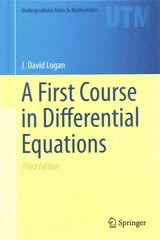Question
Question 1 There are four possible outcomes in a sample space. The probability of outcome #1 is 30%, the probability of outcome #2 is 20%,
Question 1
There are four possible outcomes in a sample space. The probability of outcome #1 is 30%, the probability of outcome #2 is 20%, and the probability of outcome #3 is 35%. What is the probability of outcome #4?
Group of answer choices
25%
2.1%
15%
85%
Question 2
Which of the following is an example of mutually exclusive events?
Group of answer choices
The event of drawing a king from a deck of cards. The event of drawing a heart from a deck of cards.
Trees in a park over 3 feet tall. Trees in a park with green leaves.
A coin is tossed two times. The event of tossing two heads in a row. The event of tossing a heads and a tails.
Number of children in a classroom. Number of children with a blue backpack in a classroom.
None of the above.
Question 3
A process produces a component that has 2 different types of defects, X and Y. The component may have none of these defects or either type of defect or both of the defects. The probability of having a defect of type X is 5% and of type Y is 3%.
What is the probability of a component having no defects?
Group of answer choices
0.9215
0.0285
0.9700
0.9200
Question 4
A process produces a component that has 2 different types of defects, W and Z. The component may have none of these defects or either type of defect or both of the defects. The probability of having a defect of type W is 6% and of type Z is 4%.
What is the probability of a component have a type W defect but not a type Z defect?
Group of answer choices
0.0485
0.0576
0.0600
0.880
Question 5
A process produces a component that has 2 different types of defects, X and Y. The component may have none of these defects or either type of defect or both of the defects. The probability of having a defect of type X is 5% and of type Y is 3%.
What is the probability that a component will not have a typeY defect?
Group of answer choices
0.95
0.03
0.0125
0.970
Step by Step Solution
There are 3 Steps involved in it
Step: 1

Get Instant Access to Expert-Tailored Solutions
See step-by-step solutions with expert insights and AI powered tools for academic success
Step: 2

Step: 3

Ace Your Homework with AI
Get the answers you need in no time with our AI-driven, step-by-step assistance
Get Started


